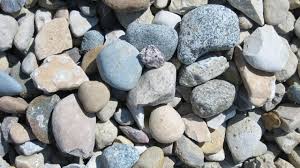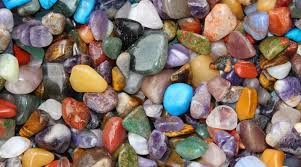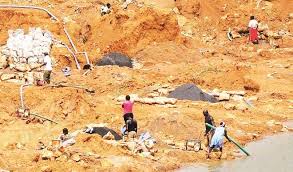![]()
If you’ve landed on this article page, you’re probably searching for a
good business idea—an idea that’s light on the pocket but heavy on
returns, promising both a fulfilling journey and potential profit.
|
How To Start A Lucrative Mining Business
In Nigeria
Mining business is a process that involves the extraction of
minerals, metals, and other valuable resources from the earth’s
crust. This process involves a range of techniques and
technologies to extract and process the resources efficiently
and safely. The mining industry in Nigeria and Africa is a vital
sector, contributing significantly to the economic growth and
development of the region. Mining companies invest heavily in
research to identify potential areas for mineral exploration and
the best methods for extraction.
Mining is the process of extracting minerals, metals, and other
valuable geological materials from the earth’s surface or
subsurface. It involves various techniques, including
underground and surface mining, as well as exploration and
development of mines. The scientific name for mining is
“extractive metallurgy,” which involves the extraction of metals
and minerals from ores through various physical and chemical
methods.
Mining has been a significant part of Nigeria and Africa’s
economy, providing valuable minerals and resources that have
contributed to the development of various industries. In
Nigeria, mining has historically played a crucial role in the
growth of the country’s economy, with the sector contributing
0.3% to the GDP in 2022. Africa, on the other hand, is home to
over 30% of the world’s mineral reserves, making it a crucial
player in the global mining industry.
Furthermore, Nigeria’s mining sector has significant export
opportunities for local mining companies, especially in the
areas of mineral processing and value addition. The Nigerian
government has implemented policies to encourage local companies
to invest in mineral processing and value addition to increase
exports of finished products.
Mining Equipment Leasing: Mining companies require specialized
equipment to operate efficiently, but the high cost of acquiring
such equipment can be a challenge. Leasing provides an
affordable option for companies to access the required
equipment.
Artisanal and Small-scale Mining (ASM): ASM refers to the use of
rudimentary and often manual techniques to extract minerals.
This type of mining is common in rural areas and involves low
levels of investment, technology, and environmental and social
standards.
Industrial Mining: Industrial mining involves large-scale,
mechanized operations that utilize advanced technologies and
equipment to extract minerals. This type of mining is
capital-intensive and requires significant investment in
infrastructure, logistics, and human resources.
Quarry Mining: Quarry mining refers to the extraction of
building materials such as stone, gravel, and sand from open-pit
mines or quarries. This type of mining is commonly used in the
construction industry for building projects.
Coal Mining: Coal mining is the extraction of coal from
underground mines or open-pit mines. Nigeria has large coal
reserves, and coal mining was a major industry in the past, but
has declined over time due to the discovery of oil.
Gold Mining: Gold mining is the process of extracting gold from
the ground. This type of mining is common in many countries,
including Nigeria and Africa.
Tin Mining: Tin mining involves the extraction of tin ore from
the ground. Nigeria was once a major exporter of tin, but the
industry has declined due to a combination of factors, including
low prices and competition from other countries.
Iron Ore Mining: Iron ore mining involves the extraction of iron
ore from the ground. Nigeria has large iron ore reserves, but
the industry is largely underdeveloped due to poor
infrastructure and lack of investment.
Diamond Mining: Diamond mining involves the extraction of
diamonds from the ground. While Nigeria has some diamond
deposits, the industry is relatively small compared to other
countries in Africa.
Lead and Zinc Mining: Lead and zinc mining involves the
extraction of lead and zinc ore from the ground. Nigeria has
significant lead and zinc deposits, but the industry is largely
underdeveloped due to a combination of factors, including low
prices and competition from other countries.
Uranium Mining: Uranium mining involves the extraction of
uranium ore from the ground. Nigeria has some uranium deposits,
but the industry is largely undeveloped.
Gemstone Mining: Gemstone mining involves the extraction of
precious and semi-precious stones from the ground. Nigeria has
significant gemstone deposits, including sapphires, rubies, and
emeralds.
Salt Mining: Salt mining involves the extraction of salt from
underground mines or salt pans. Nigeria has significant salt
reserves and the industry is a major employer in certain areas.
Barite Mining: Barite mining involves the extraction of barite
ore from the ground. Nigeria has significant barite deposits,
and the industry has potential for growth due to increasing
demand from the oil and gas industry.
Wolframite Mining: Wolframite mining involves the extraction of
wolframite ore from the ground. Wolframite is used in the
production of tungsten, which is used in the manufacture of
high-speed steel and other alloys.
Columbite Mining: Columbite mining involves the extraction of
columbite ore from the ground. Columbite is used in the
production of niobium, which is used in the manufacture of steel
alloys, superconducting materials, and other high-tech
applications.
Gold: Nigeria is home to several gold deposits, including
Segilola, Kogi Mines, and Dangote Gold. Gold mining is a viable
business opportunity in Nigeria and Africa.
Coal: Nigeria is rich in coal deposits, and it is an important
resource for power generation in the country.
Iron Ore: Nigeria has one of the largest iron ore deposits in
Africa and is home to Ajaokuta Steel Company, which was
constructed to process the iron ore deposits.
Lead and Zinc: Lead and Zinc are important minerals used for
industrial purposes such as batteries, paints, and rubber
production.
Tin: Nigeria is one of the largest producers of tin in Africa,
and it is mainly found in Jos, Plateau State.
Columbite: Nigeria has the largest reserve of columbite in the
world, and it is used for the production of niobium, which is an
important component in steel production.
Wolframite: Wolframite is used in the production of tungsten,
which is used for the production of filaments in light bulbs,
and Nigeria has large deposits of the mineral.
Limestone: Nigeria has large deposits of limestone, and it is
used for the production of cement, which is a vital component in
the construction industry.
Bauxite: Bauxite is used for the production of aluminum, and
Nigeria has a large reserve of the mineral in Ekiti State.
Gypsum: Gypsum is used for the production of plaster of Paris,
which is used for building construction, and Nigeria has large
deposits of the mineral.
Kaolin: Kaolin is used for the production of ceramics and other
industrial products, and Nigeria has large deposits of the
mineral in several states.
Tantalite: Tantalite is used for the production of tantalum,
which is used in electronic equipment such as mobile phones and
computers.
Barite: Barite is used in the oil and gas industry for the
drilling of wells, and Nigeria has large deposits of the
mineral.
Gemstones: Nigeria is home to several gemstones, including
sapphire, aquamarine, topaz, and emerald.
Feldspar: Feldspar is used in the production of ceramics, glass,
and other industrial products, and Nigeria has large deposits of
the mineral.
Clay: Clay is used for the production of bricks, ceramics, and
other industrial products, and Nigeria has large deposits of the
mineral in several states.
Bitumen: Bitumen is used for road construction and the
production of roofing materials, and Nigeria has large deposits
of the mineral.
Talc: Talc is used in the production of cosmetics, paint, and
other industrial products, and Nigeria has large deposits of the
mineral.
Dolomite: Dolomite is used in the production of refractory
bricks and other industrial products, and Nigeria has large
deposits of the mineral.
Rutile: Rutile is used in the production of titanium dioxide,
which is used for the production of paint, plastics, and other
industrial products.
Garnet: Garnet is used in the production of abrasives, and
Nigeria has large deposits of the mineral.
Mica: Mica is used in the production of electrical equipment,
insulation materials, and other industrial products, and Nigeria
has large deposits of the mineral.
Nickel: Nickel is used for the production of stainless steel,
and Nigeria has large deposits of the mineral.
Lithium: Lithium is used for the production of rechargeable
batteries and other electronic devices, and Nigeria has
potential deposits of the mineral.
Phosphate: Phosphate is used in the production of fertilizers,
and Nigeria has potential deposits of the mineral.
In Nigeria, the production of solid minerals is dominated by
artisanal and small-scale miners who produce various minerals,
including gold, tin, tantalum, lead, zinc, and coal. On the
other hand, industrial mining operations in Nigeria often focus
on minerals like limestone, granite, and iron ore.
While there may be fluctuations in production levels due to
various factors such as weather conditions, government policies,
and market demand, mining activities continue throughout the
year. Therefore, mining companies in Nigeria and Africa need to
have efficient production plans and strategies to optimize
production levels and maximize profits.
Mining and packaging of solid minerals and metals in Nigeria and
Africa involve several steps that require adherence to safety
regulations and proper handling of equipment. Here is a
step-by-step guide to mining and packaging of solid minerals and
metals in Nigeria and Africa:
Exploration: Conduct a geological survey to locate the mineral
deposits and assess their quality and quantity.
Acquisition of Mining Rights: Obtain the necessary mining
licenses and permits from the relevant government authorities.
Site Preparation: Clear the site and create access roads to
enable heavy-duty mining equipment to move in and out of the
site.
Mining Operations: Drill and blast the mineral deposits,
excavate the ore, and haul the minerals to the processing plant.
Mineral Processing: Crush, grind, and separate the minerals from
the ore using specialized equipment.
Packaging: Package the finished products in drums, sacks, or
bulk containers, depending on the client’s requirements.
Transport: Arrange for the transportation of the packaged
minerals to the designated markets.
Quality Control: Conduct quality control tests to ensure that
the products meet the required standards.
Mining and packaging solid minerals in Nigeria and Africa
require specialized equipment that can handle the rigors of the
job. Some of the equipment commonly used for mining and
packaging solid minerals in Nigeria and Africa include:
Drilling machines – used to create boreholes and extract
minerals from underground
Excavators – used for digging, loading, and transporting
minerals
Crushers – used for breaking down large rocks into smaller sizes
Conveyors – used for transporting minerals from one place to
another
Bulldozers – used for leveling land and pushing earth and debris
aside
Loaders – used for loading minerals onto trucks or conveyor
belts
Dump trucks – used for transporting minerals from the mine to
processing facilities
Pumps – used for pumping water or other liquids out of mines
Compressors – used for powering air tools and other equipment
Graders – used for leveling and smoothing land
Blasting equipment – used for breaking up rock formations to
access minerals
Magnetic separators – used for separating magnetic minerals from
non-magnetic ones
Weighbridges – used for weighing minerals and trucks for
transportation purposes
Analytical equipment – used for analyzing minerals for purity
and quality control.
These equipment, when properly used, will help to increase
productivity and efficiency in the mining and packaging of solid
minerals in Nigeria . Get resource information on how to set up a solid mineral Business, this guide reveals key insights on profitability , you will learn the step-by-step guide to starting your Solid Minerals Business, and tips on how to succeed. Also, you will learn the best way to market and profit from the Business. Most especially, you will learn the exact costs of the materials and equipment you need for your Business. The body of this work is formed from consulting experienced and relevant people running the business to get first-hand information about the success secrets and marketing strategies deployed to achieve business success.
|







